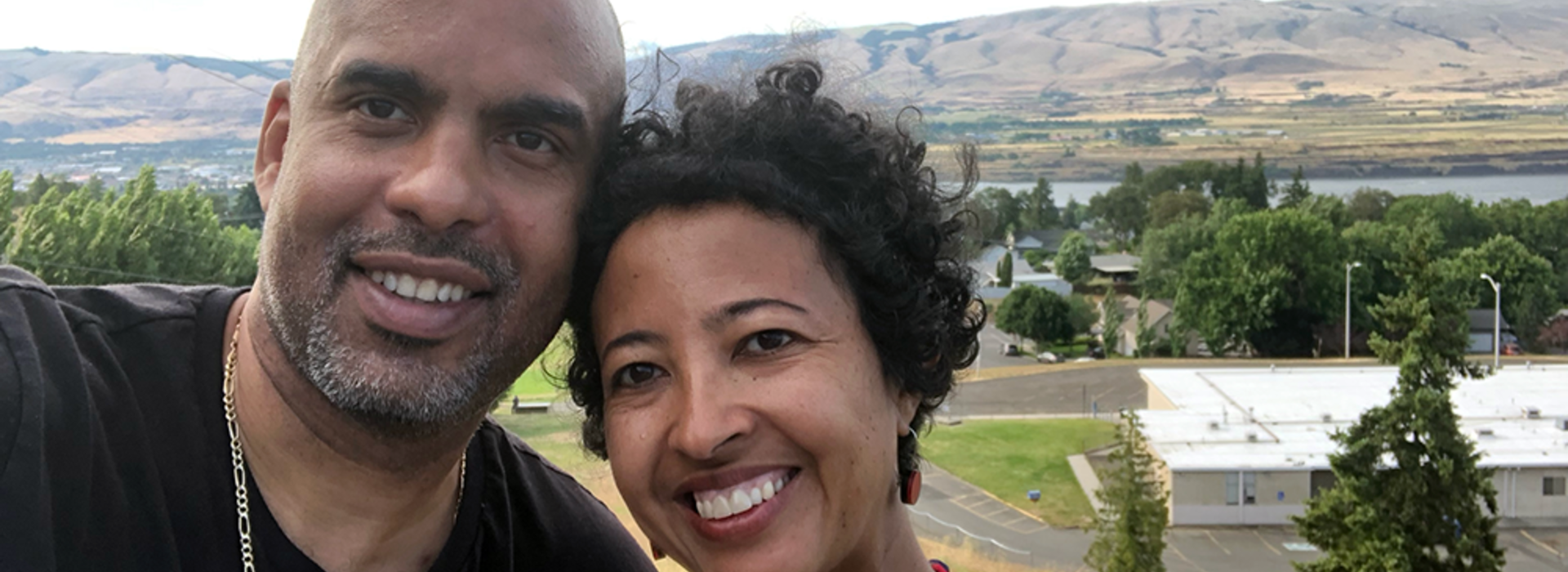
Couple Returns to Minnesota, This Time to Make an Impact in Medicine
Classrooms, clinics and laboratories don’t provide the most romantic of settings, but sometimes close proximity and a shared passion for medicine is enough to bring people together. Such is the case for Rahel Nardos, MD, MCR, and Damien Fair, PA-C, PhD, a married faculty duo joining the University of Minnesota Medical School in different fields of medicine.
Dr. Fair is the Redleaf Endowed Director of the Masonic Institute for the Developing Brain. In addition, he is a professor in the Medical School’s Department of Pediatrics and with the College of Education and Human Development’s Institute of Child Development.
Dr. Nardos joins the Medical School as an associate professor in the Department of Obstetrics, Gynecology and Women’s Health and is serving as a urogynecologist and director for Global Women's Health at the Center for Global Health and Social Responsibility.
How They Found Each Other
Dr. Nardos was born in Ethiopia and came to the United States when she was 18. As an international student, there were many barriers for admission into medical school, including no federal loans or financial aid. This limited her options to some of the most prestigious and competitive schools in the country. An advisor recommended she choose a different, more feasible path, so she spent a few years as a research assistant at Cornell and Florida State University.
“I enjoyed the science and asking questions, but I really needed that one-on-one interaction, making a difference in an immediate sense,” Dr. Nardos said.
It was valuable work, but she was still interested in women’s health issues and the disparities that affect women in particular rural communities, so she decided to take the MCAT and apply to a few top programs. After being accepted to the Yale School of Medicine, she entered an anatomy course that would change her life in more ways than just educationally — Dr. Fair, who has family roots in Winona, Minnesota, was also in the class that day. The pair later spent some of their first time together in the Twin Cities that Christmas and are now finally returning to the area.
How They Found Medicine
Their route back to Minnesota has been anything but straightforward. After residency, Dr. Nardos went back to Ethiopia for a year to work at a hospital dedicated to serving women who experienced pelvic floor injuries after birth. “It convinced me that this was the ideal path for me... global and local underserved health, clinical care, education and research all at the same time,” she said. After completing her fellowship in Female Pelvic Medicine and Reconstructive surgery, Dr. Nardos has been involved in Global Women’s Health Capacity Building Projects in multiple countries in Africa.
Initially, Dr. Fair pursued a physician assistant program but realized that he didn’t want to practice long term. After being exposed to MRI research, he forged a new path. “It got me hooked right away. I was fascinated by the ability to look inside the brain and study it,” Dr. Fair said. He has spent countless hours expanding his research expertise in brain imaging and cognitive neuroscience and joins numerous other experts to better understand how the child and adolescent brain grows and thrives.
How They Plan to Make an Impact at the U
The institute Dr. Fair co-leads focuses on the early diagnosis, prevention and treatment of neurodevelopmental disorders. The vast majority of brain growth — roughly 80 percent — happens before a child turns three years old. Dr. Fair says adolescence is another pivotal period for brain development and reorganization, making the new institute a pillar for novel future research.
“The speed and pace of the program building and infrastructure has been extreme. We are moving full speed ahead and October 2021 is the current plan,” Dr. Fair said.
The couple are eager and excited about their new roles and responsibilities with the University of Minnesota. “Sometimes you get comfortable in the things that you’re doing, and I think when Damien was recruited, I started seeing the bigger picture in what more I can accomplish with the work that I was already doing,” Dr. Nardos said.
Dr. Nardos’ role provides an abundance of growth opportunities, such as potential institution-level partnerships with other countries and a global and local underserved women’s health fellowship training program.
“I want to leverage the institution, the resources, expertise and interests to elevate others in lower resource settings, so that they are more resilient in their healthcare settings,” Dr. Nardos said. “Both Damien and I are excited by the possibility that, at University of Minnesota, we have the opportunity to work across disciplines and professional groups to ensure that the work that we do — whether it is research, education, leadership or clinical care — makes a tangible difference in our local and global communities, irrespective of zip codes or the lottery of birth.”